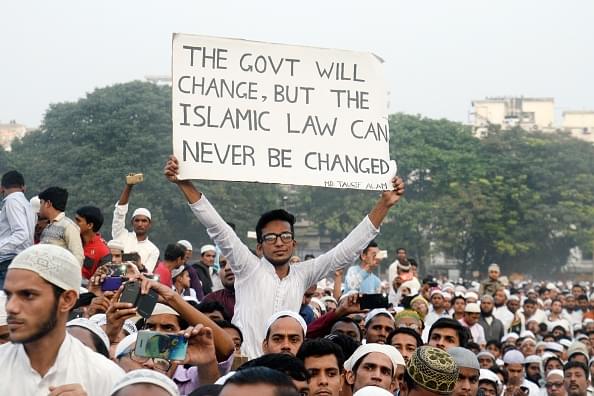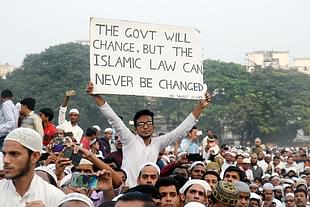Insta
‘Polygamy, Nikah Halala Based On Quran And Hadith; People From Other Faiths Cannot Question Islamic Laws’: AIMPLB
Swarajya Staff
Jan 27, 2020, 03:44 PM | Updated 03:44 PM IST
Save & read from anywhere!
Bookmark stories for easy access on any device or the Swarajya app.


In a submission to Supreme Court, All India Muslim Personal Law Board (AIMPLB) has said that religious practices of one faith should not be allowed to be questioned by someone from a different faith, News18 reported.
AIMPLB filed its response opposing a public interest litigation (PIL) challenging the validity of practises of polygamy and nikah halala among Muslims. A senior advocate Ashwini Upadhyay had filed the PIL seeking outlawing Islamic practices that violate Muslim women's right to live with dignity and their privacy.
Upadhyay's petition was based on Supreme Court judgment declaring instant triple talaq as void ab initio, as also, the ruling on the right to privacy.
The Ulema representing AIMPLB said that Article 44 in the constitution( that calls for Uniform Civil Code for the entire country) was “only a directive principle of state policy and is not enforceable”.
AIMPLB highlighted that the 'Mohammedan Law is based on the Holy Quran and Hadith' and its validity can't be tested on a challenge based on fundamental rights.
Nikah halala is a law that requires a woman to marry and sleep with another man in order to return to her first husband. A divorced woman is deemed to become ‘halal’ (lawful) for her husband again after nikah halala is complete.
It is said that Nikah halal rule was established by the Mohammed, who followers of Islam regards as their prophet, himself. Islamic scholars claim that Mohammed formulated the rule in a bid to end the “barbarous pre-Islamic” practice that permitted to divorce wife and take her back any number of time times in order to ill-treat her.





